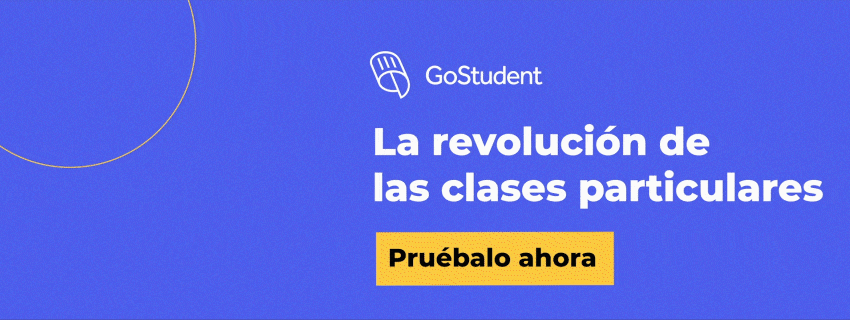Capítulos:
- Conjugación del verbo To Be en presente
- Pasado simple y compuesto del verbo To Be
- Verbo To Be en futuro: Formas y tener en cuenta
- Ejercicios para aprender el verbo To Be
Cualquiera que haya estudiado un mínimo de inglés habrá oído hablar del verbo To Be, uno de los más importantes en esta lengua. Y es que además de ser un verbo principal, puede servir como auxiliar para formar otras voces y tiempos. Hoy te damos las claves para conocer mejor este súper verbo.
Conjugación del verbo To Be en presente
Una de las primeras preguntas que debes hacerte para entender el verbo To Be cuando estás estudiando inglés es ¿para qué se utiliza? Pues bien, este verbo sirve para describir estados o situaciones (engloba los verbos ser y estar).
Vamos a empezar la casa por los cimientos. 🏗️ La conjugación del verbo To Be en Present Simple es una de las que más vas a oír y utilizar en tu día a día con el inglés.
|
To Be Verb - PRESENT SIMPLE |
||
|
Positive |
Negative |
Question |
|
I am |
I am not |
Am I? |
|
You are |
You are not |
Are you? |
|
He/She/It is |
He/She/It is not |
Is He/She/It? |
|
We are |
We are not |
Are we? |
|
You are |
You are not |
Are you? |
|
They are |
They are not |
Are they? |
Aquí tienes algunos ejemplos y su traducción:
- I am your teacher = Yo soy tu profesora
- They are from Sevilla = Ellos son de Sevilla
- Are you her brother? = ¿Eres su hermano?
El verbo To Be en Present Perfect se forma combinando has o have con el participio. Se utiliza para hablar de acciones o eventos que forman parte del presente pero que ya se han completado.
|
To Be Verb - PRESENT PERFECT |
||
|
Positive |
Negative |
Question |
|
I have been |
I haven’t been |
Have I been? |
|
You have been |
You haven’t been |
Have you been? |
|
He/She/It has been |
He/She/It hasn’t been |
Has he/she/it been? |
|
We have been |
We haven’t been |
Have we been? |
|
You have been |
You haven’t been |
Have you been? |
|
They have been |
They haven’t been |
Have they been? |
Lo entenderás mejor con estos ejemplos:
- I have been a teacher for many years = He sido profesor durante muchos años
- She has been to France several times = Ha estado en Francia 🇫🇷 varias veces

Pasado simple y compuesto del verbo To Be
Seguro que ya te habrás dado cuenta: 👀 el verbo To Be es un verbo irregular, y por eso sus formas cambian dependiendo del tiempo en el que se conjugue.
En las siguientes tablas vas a ver cómo se forma el Past Simple (Pasado Simple) y el Past Perfect (Pasado Perfecto) del verbo To Be.
El Past Simple se utiliza para expresar hechos y estados del pasado que ya han concluido.
|
To Be Verb - PAST SIMPLE |
||
|
Positive |
Negative |
Question |
|
I was |
I was not |
Was I? |
|
You were |
You were not |
Were you? |
|
He/She/It was |
He/She/It was not |
Was He/She/It? |
|
We were |
We were not |
Were we? |
|
You were |
You were not |
Were you? |
|
They were |
They were not |
Were they? |
Vamos a ver algunos ejemplos y su traducción:
- The party was amazing! = ¡La fiesta fue increíble!
- Were you sad yesterday? = ¿Estabas triste ayer?
Por otro lado, el Past Perfect se utiliza para referirse a una acción que ocurrió en el pasado antes que otra, y se construye a partir de la siguiente fórmula: SUJETO + AUXILIAR TO HAVE EN PASADO (HAD) + PARTICIPIO DEL VERBO TO BE (BEEN)
|
To Be Verb - PAST PERFECT |
||
|
Positive |
Negative |
Question |
|
I had been |
I had not been |
Had I been? |
|
You had been |
You had not been |
Had you been? |
|
He/She/It had been |
He/She/It had not been |
Had he/she/it been? |
|
We had been |
We had not been |
Had we been? |
|
You had been |
You had not been |
Had you been? |
|
They had been |
They had not been |
Had they been? |
Echa un vistazo al siguiente ejemplo:
- I had been the goalkeeper of the team before I went to college in another city = Yo era el portero del equipo antes de irme a estudiar a otra ciudad.
Verbo To Be en futuro: Formas y tener en cuenta
Para describir hechos y estados del futuro se utilizan tres formas: el Future Simple, el Future Perfect y el To Be Going To.
El Futuro Simple del verbo To Be es muy fácil de construir: SUJETO + WILL + INFINITIVO DEL VERBO TO BE
|
To Be Verb - FUTURE SIMPLE |
||
|
Positive |
Negative |
Question |
|
I will be |
I won't be |
Will I be? |
|
You will be |
You won’t be |
Will you be? |
|
He/She/It will be |
He/She/It won’t be |
Will He/She/It be? |
|
We will be |
We won’t be |
Will we be? |
|
You will be |
You won’t be |
Will you be? |
|
They will be |
They won’t be |
Will they be? |
Ejemplos:
- Will we be at the beach next weekend? = ¿Estaremos en la playa el próximo fin de semana?
- They will be a great team = Serán un gran equipo
El Futuro Perfecto se utiliza para hablar de algo que sucederá antes de otra acción en el futuro. 🔮 Se construye así: SUJETO + WILL + AUXILIAR TO HAVE EN INFINITIVO + TO BE EN PARTICIPIO
|
To Be Verb - FUTURE PERFECT |
||
|
Positive |
Negative |
Question |
|
I will have been |
I will not have been |
Will I have been? |
|
You will have been |
You will not have been |
Will you have been? |
|
He/She/It will have been |
He/She/It will not have been |
Will He/She/It have been? |
|
We will have been |
We will not have been |
Will we have been? |
|
You will have been |
You will not have been |
Will you have been? |
|
They will have been |
They will not have been |
Will they have been? |
Aquí tienes un ejemplo:
- You will have been named the winner by the end of the day = Habrás sido declarada la ganadora antes de que termine el día.
Por último, vamos a hablar de una forma especial de futuro, el To Be Going To. Se utiliza para referirnos a planes futuros que ya hemos decidido, para expresar nuestras intenciones. Se construye así: 👉 TO BE GOING TO EN PRESENTE + TO BE EN INFINITIVO
|
TO BE GOING TO |
||
|
Positive |
Negative |
Question |
|
I am going to be |
I am not going to be |
Am I going to be? |
|
You are going to be |
You are not going to be |
Are you going to be? |
|
He/She/It is going to be |
He/She/It is not going to be |
Is He/She/It going to be? |
|
We are going to be |
We are not going to be |
Are we going to be? |
|
You are going to be |
You are not going to be |
Are you going to be? |
|
They are going to be |
They are not going to be |
Are they going to be? |
¿Sabrías utilizar esta forma verbal? Estos ejemplos te ayudarán:
- When I'm older, I'm going to be an astronaut! = ¡Cuando sea mayor, voy a ser astronauta!
- Am I going to be a good mother? = ¿Seré una buena madre?
Ejercicios para aprender el verbo To Be
Ahora te invitamos a poner a prueba lo que has aprendido sobre el verbo To Be. Para llegar a dominar su conjugación necesitas mucha práctica, y para eso están los ejercicios. 📝 Cuando se estudia un idioma, conocer las reglas gramaticales es esencial. Y aunque muchas cosas las tendrás que memorizar (te recomiendo el uso de reglas mnemotécnicas), el aprendizaje real está en el uso aplicado a oraciones y textos. Resumiendo: ¡a conjugar se aprende conjugando! Ahora a por todas, y si cometes errores no pierdas la motivación: recuerda que los fallos te permiten mejorar.
DESCARGAR EJERCICIOS Y por supuesto, si necesitas una ayuda extra, las clases particulares de inglés de GoStudent te vendrán de perlas.
Y por supuesto, si necesitas una ayuda extra, las clases particulares de inglés de GoStudent te vendrán de perlas.
.jpg)




.jpg?upsize=true&upscale=true&width=100&height=100&name=theatre-kids-opera%20(2).jpg)
.jpg?upsize=true&upscale=true&width=100&height=100&name=plants-biology-photosynthesis%20(1).jpg)
.jpg?upsize=true&upscale=true&width=100&height=100&name=kid-child-heart%20(2).jpg)


.jpg?width=415&height=205&name=language-class%20(2).jpg)
.jpg?width=415&height=205&name=calendar-date-in-english%20(1).jpg)